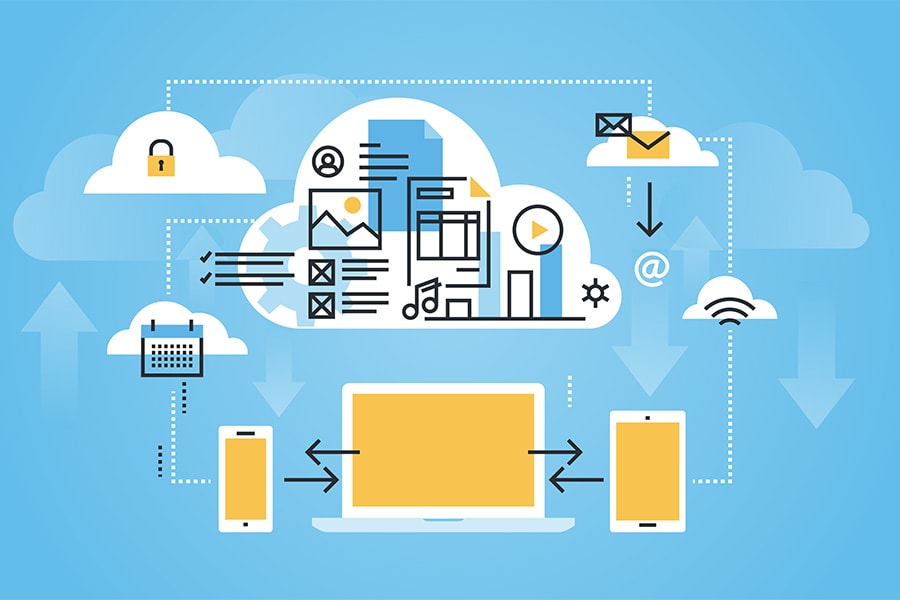
Digital transformation: How to lead and win

Digital transformation is here and now. Governments, industries, businesses, professions and individuals have stood witness to the exponential changes that digital has wrought in how we live and work.
Take a look at a recent survey. As many as 49 percent business leaders think digital transformation is already underway, against 15 percent two years ago. Another 33 percent think it will hit them over the next three years.
There is an accelerated disruption occurring across industries – ranging from tech products and services, telecom to healthcare, hospitality and even tourism. This is a result of advancements in analytical tools and applications - spurred by new technology such as AI, IoT and Blockchain - with data at the core. With democratization of data, leaders, decision makers and analysts see unique opportunities and are using data-led insights to make predictions, decisions and to rethink business models. Today, every business is experiencing a surge in data ownership and the way data is being utilized. This will dictate the future.
The retail industry for instance is moving from a ‘big box’ culture to hyper-personalisation. The auto industry is shifting gears from privately owned to shared and self-driving. Learning and education is moving from the classroom to online while banking is taking a leap from physical branches to mobile apps.
The impact on your leadership cannot be understated.
While traditional businesses may feel threatened, it is the speed at which they adapt to change that would make a difference. The test for you as a business leader begins here.
So, who is seizing the data opportunity?
India’s hyper-local stores are a unique illustration of how they keep up with the digital and e-retail led disruption. The country’s 15 million brick-and-mortar outlets face stiff competition as consumers are increasingly preferring online shopping over visiting physical stores. Yet, those who dare will benefit to gain.
Numerous stores have transformed by adopting fully-integrated solutions, collaborating with etailers rather than competing with them, becoming e-commerce ready in the process. The end consumers are equal gainers, with their reliable neighbourhood stores offering an online shopping experience, with the added benefit of convenient and secured payments.
Customer centricity pushes ‘phygital’ businesses - ensuring an attractive online presence to match a high-end physical store experience. In addition to retail, the banking and insurance industry has been at the forefront of transformation to achieve customer centricity. With the emergence of trends like blockchain and fintech, evolving consumer expectations, and relentless competition from smaller and more agile players in the market, have pushed banks and insurance firms to rethink how, where and when they engage with customers. With data at the heart of transformation, banks can break product silos to quickly differentiate themselves and streamline operations.
By adding cutting edge cognitive computing technologies, businesses of all sizes have been able to focus on insights, agility and security while offering amazing, on-demand customer experiences.
Manipal Hospital chose to implement Watson for Oncology – IBMs cognitive system that works with doctors and patients to provide assisted healthcare recommendations. Watson interacts using natural language to generate hypotheses based on evidence, while ‘learning’ along the way. The amount of unstructured data in the form of patient records, medical imagery and medical study/research material that is put to work is unprecedented. The impact? Doctors can focus on treating and caring for patients rather than spending time refreshing and researching. Today, this job can be done by the system using the extraordinary amount of historical data on cancer conditions.
Somebody’s watching you…
While you concentrate on digital transformation and automate business processes, it is critical to make cybersecurity a top priority. This includes integrating cyber threat hunting into your security strategy to detect, counter and mitigate digital threats proactively.
Security has taken a dramatic meaning in today’s era. While data presents amazing opportunities, it also brings with it the need to protect your sensitive customer and operation data. If your data is valuable to you, it is then equally valuable to perpetrators.
Ransomware is not a fictitious threat anymore , with a company’s reputation and billions of dollars at stake. Todays’ technologies can leverage cognitive to understand, reason and learn about security threats and potential vulnerabilities enabling businesses to take preventive measure early on.
Seize the moment
What can you do to thrive in a digital environment? A collaborative approach to decision making, and agility. You must make both imperative. Move away from a top-down decision making approach and encourage cross-functional collaboration. Yes, it means taking on the existing culture in your organisation, breaking down walls and creating new communication lines between people.
As a business leader, it is your ability to lead and seize the moment and futureproof your business.
X




